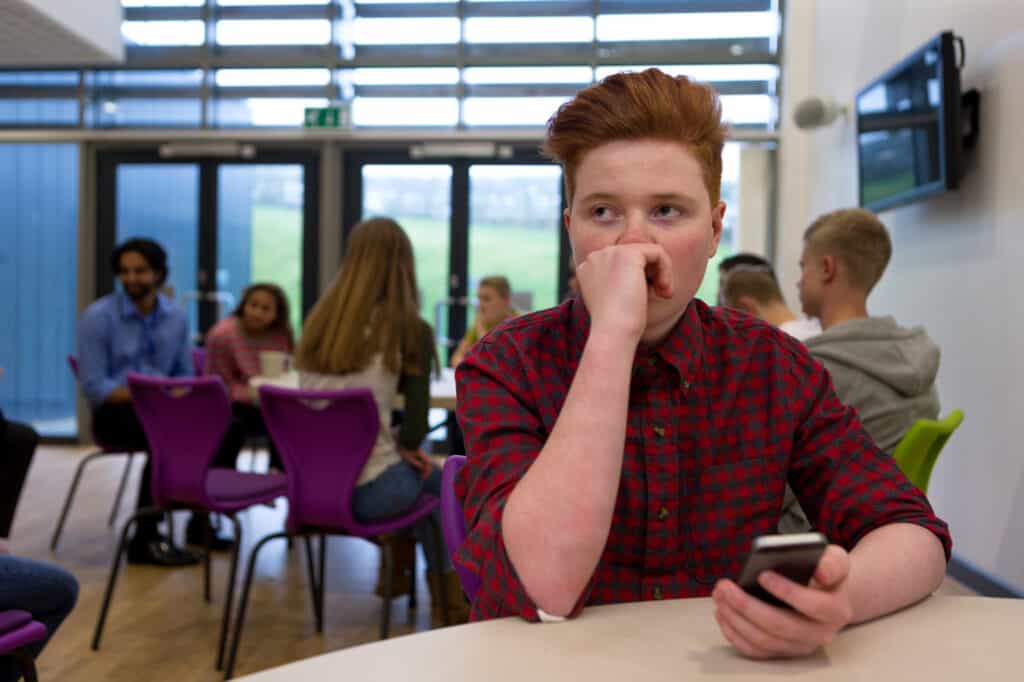Luis Rios used to have one way to react when he felt he was being dissed: with his fists, according to an article in Chalkbeat Philadelphia.
Luis, 15, was a straight A student at Philadelphia’s Hopkinson Elementary School, where he was good at math and loved to draw. He enrolled at Bodine High School for International Affairs, a special admission school that he and his father hoped would keep him away from trouble. Not so.
He felt out of place at Bodine, and his home life was in turmoil. During his first year at the school, he got into fights. He was barred from participating in sports due to his disciplinary infractions and sagging grades. This made him angrier, setting off a vicious cycle. After several incidents and the appropriate due process proceedings, he was sent for sophomore year to Achieve Academy East, a “transition” school for students with discipline infractions, where they work on controlling their anger and learning how to solve problems without resorting to violence.
Luis was one of 27 students at the school who received certifications for completing a six-week program run by Temple University on conflict resolution for youth. In the program, which began in 2022, the students learn de-escalation strategies, primarily through intensive discussion and role-playing.
The school, which is privately managed by Specialized Education Services, keeps students for 45-day placements, after which they transition back to other schools.
The biggest thing Luis learned? “How to keep your mouth shut,” he said. “You can’t be mad when things don’t go your way.”
Luis’s cohort is the fourth to complete the program, which by spring will be in seven district schools. Since its inception, 225 students have graduated from the program.
Nylaah Booker, 14, was sent to Achieve after she was caught at Finletter Elementary School with “contraband,” which means either alcohol or drugs, on her person. She said she agreed to hold it for someone else. She also had, by her own admission, “a little temper problem.”
Conflict can escalate quickly for students — a joking comment that someone takes seriously can devolve into cussing, pushing, and even worse. A fight can eventually lead to gunfire, “or we can talk about it and hug it out,” Nylaah said.
And that possibility of violence isn’t just an abstraction for Nylaah: She lost her brother to gun violence. Then her mother had a heart attack not long after.
Now, she said, “I don’t react to petty things.” She learned skills during the Temple program that kept her away from “being angry all the time.”
Having completed the conflict resolution program, she plans to complete her school year at Franklin Learning Center and, like Luis, will also become a mentor to other students – a paid job. Nylaah is eager to share what she’s learned.
“A key is to think about other people’s feelings, not just your own, she said. “It helped me mature more, it helped me definitely see things differently.”
Both Nylaah and Luis have been at Achieve since the start of the school year. At Achieve, in addition to learning how to deal with conflict and his emotions, students also learn to lean into their talents.
“I grew up in the boxing world,” said Luis’s father, Nelson. He runs a boxing program for youth and has taught Luis to box since he was little. “But now we live in a day and age when you can’t put your hands up because you’re afraid the other person will pull out a gun.”
Chalkbeat Phila





